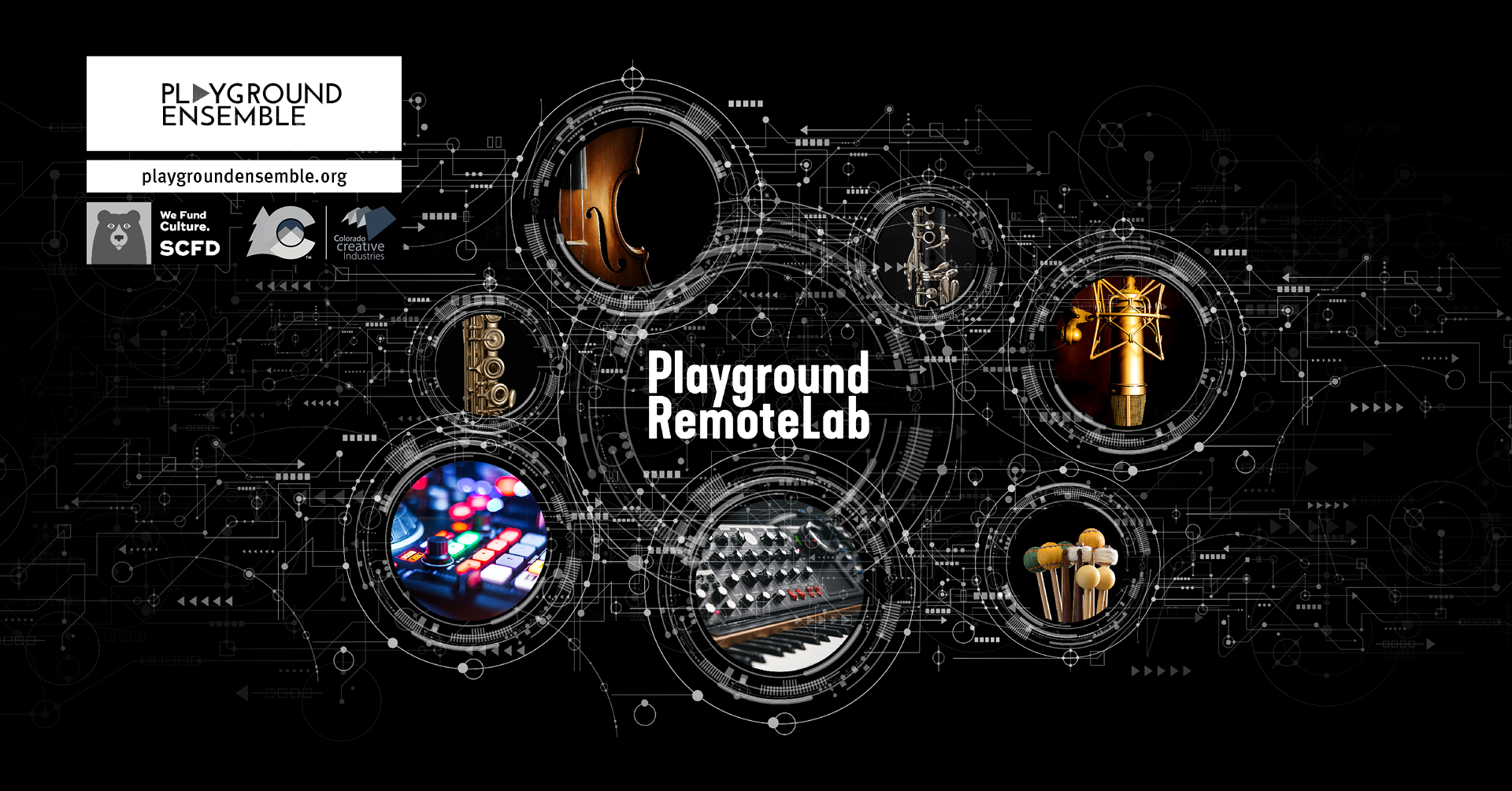December 11, 2020
Join the Live Stream
5:00-5:30pm MST
Join the Playground Ensemble and Denver Public Library for a fun, 30-minute happy hour performance featuring sound artists from all over the world!
RemoteLab is the Playground’s newest initiative to commission musical and multimedia creative works designed specifically for the features and limitations of online conferencing platforms. Watch musicians perform synchronously from various locations or actively participate in the creative process by making live, real-time contributions that inform the final musical product.
THE PROGRAM
Breathe by Aakash Mittal
Text by Jasmine Wilson
Featuring
Breathe is written for any instrumentation plus voice to be rehearsed and performed on Zoom, asking the ensemble to making breathing sounds, read text, play material score in western notation, and improvise. The work utilizes the Zoom “share screen” feature to share the score, with an ensemble playing together over Zoom and a conductor cueing each event. Ensemble members make breathing air sounds, read text, play material scored in western notation, and improvise, taking advantage of the Zoom platform’s prioritization of talking and spoken words rather than instruments.
Breathe engages audiences to remember their breath and consider what it means to breathe right now, ultimately leading to a poignant catharsis. The work addresses the current social, political and environmental climate by addressing three questions - What does it mean to breathe during the Covid-19 pandemic? In the wake of George Floyd’s murder, who is allowed to breathe in American society? How can breath be healing during these difficult times? Wilson’s text tells a story that disrupts the conditioning of whiteness in America with references to ancestry and highlighting the way “breathing through the pain” is often used to disregard our bodies so we can continue to produce within a capitalist system.
NO YOU GO NO YOU GO by Nathan Hall
Four musicians show up to their online rehearsal, each with various levels of technological know-how. Foibles and hilarity ensue, and by the end of the work no music rehearsal actually takes place but we all somehow feel a little better.
This unique quartet work is designed to be performed as a four-quadrant video over Zoom, with musicians playing their own instruments as well as added household appliances and found sound-makers.
compression study 3 by JP Merz
Merz’ compression study series approaches YouTube as another performer in the ensemble, utilizing the platform’s algorithms and interface for both composition and performance. Using YouTube’s built-in algorithms to find new sounds, the series explores YouTube’s sonic materiality, in particular, the compression algorithms designed primarily for spoken voice that react in unexpected ways when used with harmonic, musical sounds as source material. compression study 3 employs a string duo to subvert YouTube’s intended use, exploring the non-neutrality of simple and taken-for-granted algorithms, and asks audiences to question the algorithmic biases that shape our perceptions of the world.
Renaissance Renaissance by Minato Sakamoto
In Renaissance Italy, singers improvised complex canonic music by following a set of musical operations. Bringing together organic spontaneity, Renaissance Renaissance predeterminate expands our musical imagination and renovates a historical practice through an interactive human (voice) and computer improvisation.

